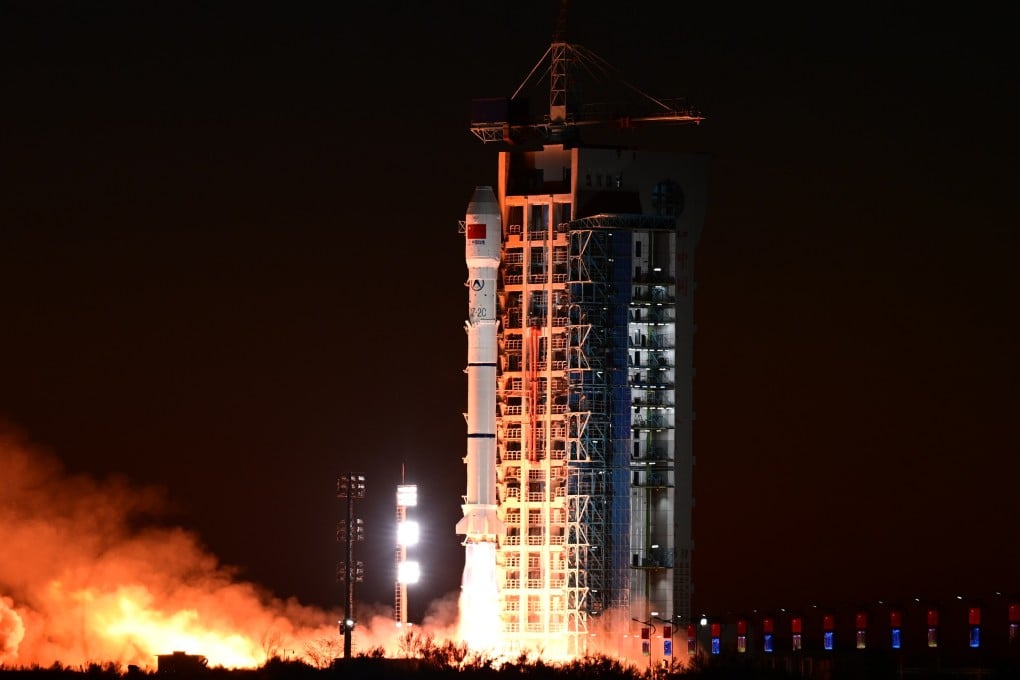China declares space milestone in launch of ‘self-driving’ radar satellites
Mapping satellites expected to provide data on natural resources, urban safety, emergency response and maritime affairs

China has launched the world’s first “self-driving” satellites that can maintain or change their flight course without any help from the ground, according to their developer.
The two mapping satellites – Siwei Gaojing-2 03 and Gaojing-2 04 – blasted off on a Long March-2C carrier rocket from the Jiuquan Satellite Launch Centre in northwest China at 7.39am on Monday before entering their preset orbits.
The developer said the pair would usher in a new era of “self-driving” commercial satellites, with abilities that include automatic orbit return and fly-around.
“After in-orbit operation, they will achieve the world’s first autonomous and strict orbit return at the 100-metre [328-foot] level, and formation-coordinated fly-around at the sub-metre level,” SAST said, adding this could simplify in-orbit control and better guarantee safety.
The developer said the satellites – which are equipped with high-precision radar payloads and other advanced technologies – would provide “all-day, all-weather, high-resolution radar imagery” and “significantly improve the accuracy of surveying and mapping products”.
Once operational, the satellites will provide data for natural resource management, urban safety, emergency response and maritime affairs, according to SAST.
